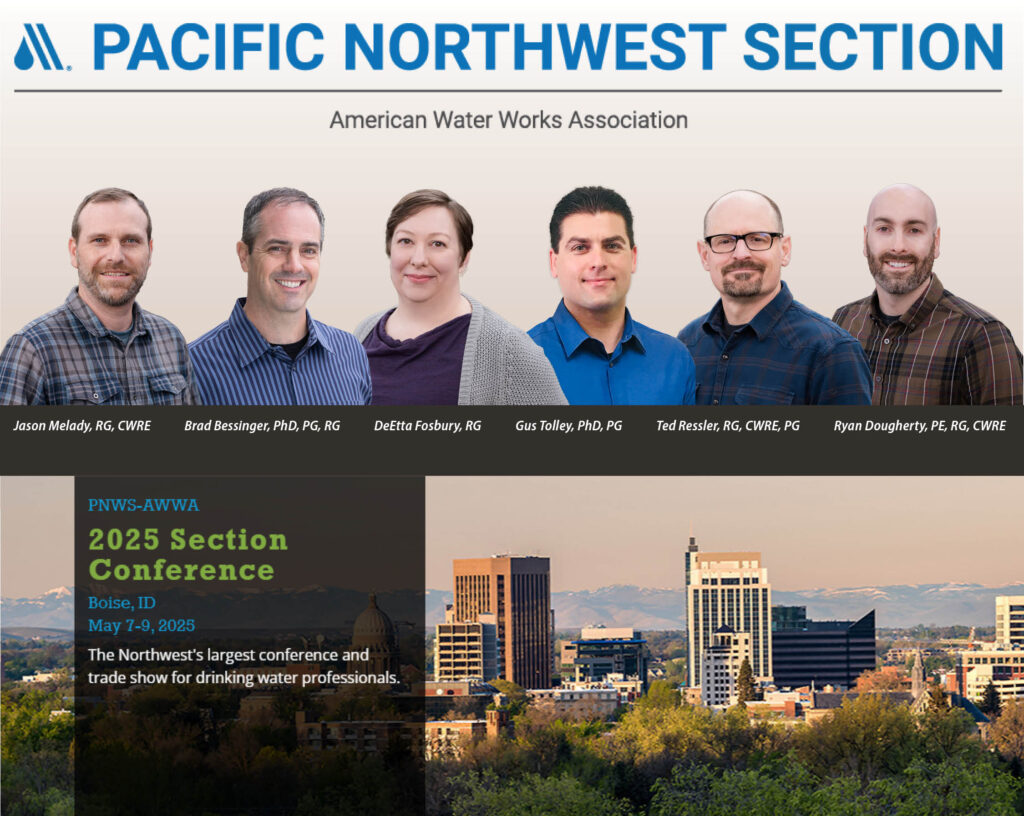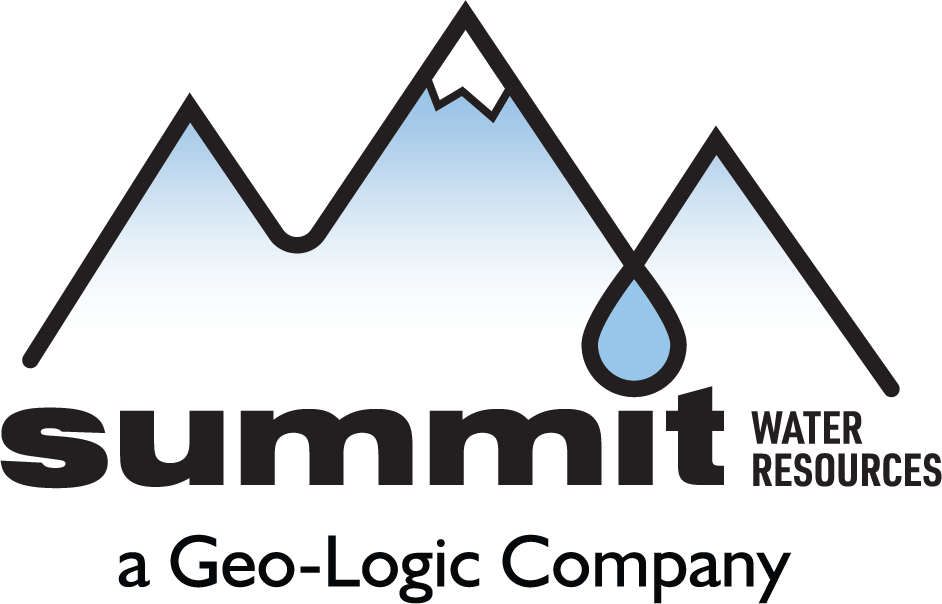
Summit Water Resources is proud to be a Silver sponsor of the Pacific Northwest Section of the American Water Works Association (PNWS-AWWA) 2025 Section Conference in Boise, Idaho from May 7 to 9, 2025. This event is the largest conference and trade show for drinking water professionals in the Northwest. Summit hydrogeologists Jason Melady, RG, CWRE; Ted Ressler, RG, CWRE, PG; DeEtta Fosbury, RG; Ryan Dougherty, PE, RG, CWRE; and geochemist Brad Bessinger, PhD, PG, RG will be attending, as well as Gus Tolley, PhD, PG from Geo-Logic subsidiary Daniel B. Stephens & Associates, Inc.
Presentations
Jason Melady will present on the topic of “Successful Management of the Bull Mountain-Cooper Mountain Critical Groundwater Area through Implementation of Aquifer Storage and Recovery (ASR)” on May 8 at 10:15 a.m.
Presentation Abstract
As a result of observed declines in groundwater levels of the Columbia River Basalt Group aquifer within Oregon’s Tualatin River basin near Tigard and Beaverton, the Oregon Water Resources Department designated the aquifer a Critical Groundwater Area (CGWA) in 1974. The Cooper Mountain-Bull Mountain CGWA (CM-BM CGWA) prohibited issuance of new groundwater permits developing water from the basalt aquifer and significantly curtailed existing groundwater users. In the early 2000s, Beaverton, Tigard, and the Tualatin Valley Water District (TVWD) initiated development of ASR within the CM-BM CGWA as a water management tool to help meet growing peak summertime drinking water demands. Collectively, these three water providers have developed seven ASR wells capable of recharging groundwater in the CGWA at rates up to 10 million gallons per day and at a volume of nearly a billion gallons per year. As a result, CGWA groundwater levels have rebounded to historic highs.
Rob Annear, PhD, PE of Annear Water Resources, and Jason Melady will present on the topic of “Thermal Loading Regulation and Mitigation for Water Utilities” on May 8 at 4:00 p.m.
Presentation Abstract
Many rivers in the Pacific Northwest are 303(d) listed for excessive water temperatures threatening Endangered Species Act (ESA) listed species. Water temperature total maximum daily loads (TMDLs) have been developed for many of these rivers, and thermal loading limitations have been put on dischargers. In 2016, the State of Oregon Department of Environmental Quality (DEQ) initiated a water quality trading program to provide options for mitigating thermal impacts. Initial water quality trading allowed wastewater treatment plants, through their National Pollutant Discharge Elimination System (NPDES) Permits, to develop thermal trading plans to mitigate thermal loading. DEQ is now using this program for projects with a nexus to rivers with ESA listed species, including new surface water intakes for drinking water. The talk will cover the water quality trading program, its current application to water withdrawals through the 401 Water Quality Certification process, implications for future use, thermal mitigation strategies accepted by DEQ, and new strategies such as using aquifer storage and recovery for thermal mitigation.
Brad Bessinger will present on the topic of “Evaluation of Per- and Polyfluoroalkyl Substances (PFAS) Fate and Transport During Aquifer Storage and Recovery (ASR) in Basalt” on May 8 at 4:00 p.m.
Presentation Abstract
PFAS, which are increasingly detected in water supply aquifers, have the potential to affect ASR operations in the Pacific Northwest. This presentation discusses a case study that used reactive transport modeling to evaluate the feasibility of mitigating PFAS impacts in a basalt aquifer by creating an ASR bubble with reduced PFAS concentrations. The model incorporated site-specific hydrogeological parameters and PFAS adsorption to mineral surfaces. Results indicate that successful mitigation depends on groundwater flow and aquifer geochemistry, with multiple ASR cycles potentially required to reduce PFAS below maximum contaminant levels in recovered water. Chemical augmentation of the aquifer could enhance PFAS reduction during ASR and should be further researched.
Gus Tolley will present on the topic “Groundwater Management in California: State of Sustainable Groundwater Management Act Implementation” on May 8 at 9:45 a.m.
Presentation Abstract
The Sustainable Groundwater Management Act (SGMA) was one of the largest environmental regulatory changes in California in decades, and the largest change to the California water rights system in 100 years. This presentation will cover how groundwater management in California is handled under SGMA, the implementation timeline, and generally how well this new regulatory framework is progressing. Comparisons and contrasts with groundwater management approaches in other western states will be included.
